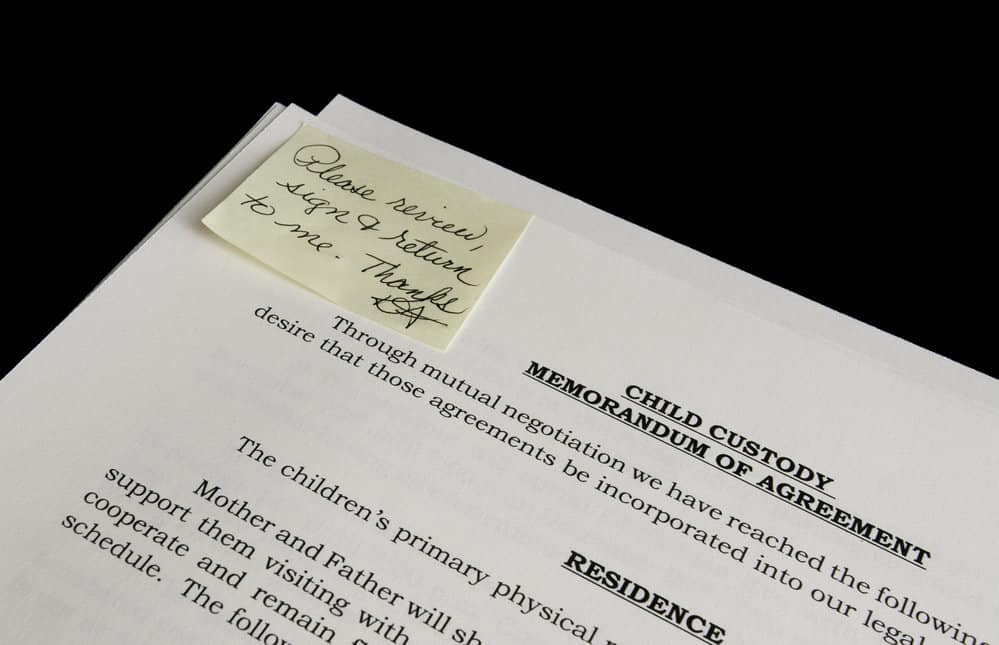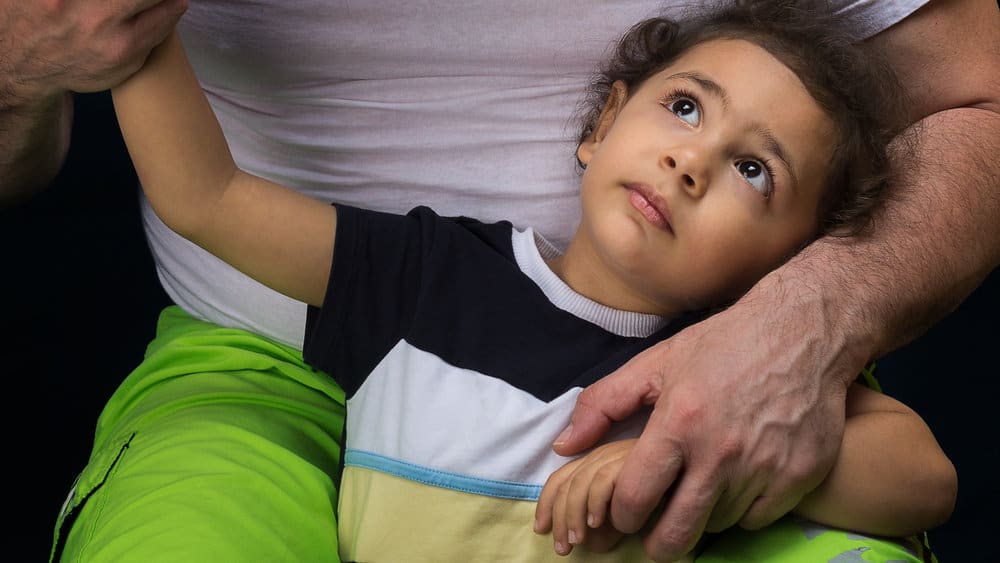The Uniform Child Custody Jurisdiction and Enforcement Act (UCCJEA) is a legal framework created by the National Conference of Commissioners on Uniform State Laws in 1997. It was designed to help resolve interstate child custody disputes and has been adopted by 49 U.S. states, the District of Columbia, Guam, Puerto Rico, and the U.S. Virgin Islands. The primary goal of the UCCJEA is to establish clear guidelines regarding which state has jurisdiction over a child custody case, thus preventing conflicting rulings and reducing the likelihood of parental kidnapping.
Under the UCCJEA, jurisdiction in child custody cases is based on a child’s relationships and connections with a particular state. The act consists of several key components, including defining the concept of jurisdiction, outlining the process for determining initial custody and modifying existing orders, and providing guidelines for enforcing child custody orders across state lines. It also addresses potential issues such as emergency jurisdiction, preventing forum shopping, and determining when someone is considered “acting as a parent.”
Key Takeaways
- The UCCJEA aims to resolve interstate child custody disputes and provides clear guidelines to determine jurisdiction.
- The act covers important aspects such as initial custody determination, modifications, and enforcement across state lines
- The UCCJEA addresses potential issues like emergency jurisdiction and forum shopping to ensure fairness and consistency in custody cases.
 Understanding UCCJEA
Understanding UCCJEA
The Uniform Child Custody Jurisdiction and Enforcement Act (UCCJEA) is a crucial aspect of family law that you should be aware of when dealing with interstate child custody disputes. This uniform state law determines which court has the jurisdiction to make decisions in child custody cases involving more than one state.
As a parent involved in a custody battle across state lines, you may find comfort in knowing that the UCCJEA seeks to protect the child’s best interests. This act ensures that courts in the child’s “home state” have exclusive and continuing jurisdiction over custody matters. The “home state” refers to the state where the child has lived with a parent for six consecutive months before the commencement of the proceeding (or since birth for children younger than six months).
It’s essential to understand that the UCCJEA covers all child custody proceedings. These may include legal custody, physical custody, or visitation issues in cases like marital actions (dissolution, nullity, or legal separation), juvenile court dependency proceedings, and termination of parental rights proceedings.
One important aspect of the UCCJEA is its focus on preventing jurisdictional conflict between states, tribes, or territories. By having a standardized law across states in the U.S. it minimizes confusion and potential bias when determining which court has the authority to decide on a custody case.
So, as you navigate the complexities of family law, remember that the UCCJEA exists to ensure a fair and consistent approach to child custody matters across state lines. By understanding and following this act, you can prioritize your child’s well-being and work towards the best possible outcome for your family.
 Concept of Jurisdiction in UCCJEA
Concept of Jurisdiction in UCCJEA
Regarding child custody matters, jurisdiction is crucial in determining which court has the authority to make decisions. The Uniform Child Custody Jurisdiction and Enforcement Act (UCCJEA) is an important law that helps clarify which court has jurisdiction in custody cases that involve multiple states.
The UCCJEA establishes four bases for jurisdiction: home state, significant connection, more appropriate forum, and no other state jurisdiction. The primary focus of the UCCJEA is on home state jurisdiction, which means that the court in the child’s home state has the authority to make custody decisions. The home state is defined as the state where the child has lived with a parent for at least six consecutive months before the commencement of the proceeding or since birth for younger children.
In cases where no court has home state jurisdiction, the UCCJEA allows for significant connection jurisdiction. This means that a court can exercise authority if the child and at least one parent have a significant connection with the state and substantial evidence concerning the child’s care, protection, and personal relationships is available in the state. This test helps to ensure that the court making the custody decision is familiar with the child’s circumstances and best interests.
Another basis for jurisdiction under the UCCJEA is the more appropriate forum test. A court may decline to exercise its jurisdiction if it finds that another state’s court is better suited to handle the case due to factors such as the location of evidence, the parties’ convenience, and the interests of justice.
Lastly, the no other-state jurisdiction rule allows a court to exercise jurisdiction when no other state can meet any of the three aforementioned jurisdictional tests. This ensures that a court can resolve custody disputes, even when none of the involved states have a clear connection to the child or parents.
By establishing these clear jurisdictional guidelines, the UCCJEA promotes cooperation among states and helps to prevent jurisdictional disputes in child custody cases. This reduces the likelihood of conflicting court orders and provides a framework for interstate recognition and enforcement of custody orders. Understanding the jurisdiction concept in UCCJEA is essential to navigating the complexities of child custody cases involving multiple states.
Significant Connections and Substantial Evidence
When dealing with child custody matters under the Uniform Child Custody Jurisdiction and Enforcement Act (UCCJEA), you’ll often encounter the concepts of significant connections and substantial evidence. Let’s examine these terms and why they are crucial in child custody jurisdiction decisions.
In custody cases, a state can assert its jurisdiction based on significant connections. It means the child and at least one parent have a meaningful relationship with the state. These connections can include frequent visits to the state, enrollment in schools, participation in regional activities, and other factors that establish a strong bond between the child and the state.
Substantial evidence goes hand-in-hand with significant connections. It is the actual proof that supports the claim that the child has close ties to the state. This evidence can demonstrate the child’s care, protection, training, and personal relationships within that state. Some examples of substantial evidence are:
- School records and report cards
- Medical and dental records
- Testimonies from teachers, counselors, or coaches
- Photographs and videos of the child participating in state-based events and activities
A state with significant connection jurisdiction must also have substantial evidence to support the claim. Without it, the court might not have enough grounds to make an informed decision about the child’s best interests.
Now that you understand the importance of significant connections and substantial evidence in UCCJEA cases, you’ll be better equipped to navigate child custody confidently. Always seek professional legal advice when dealing with sensitive and complex family law issues.
 Initial Custody Determination and Modifications
Initial Custody Determination and Modifications
When dealing with child custody cases, it’s important to understand the concept of initial custody determination and the process of modifications. In this section, you will learn about the basics of these two aspects in the context of the Uniform Child Custody Jurisdiction and Enforcement Act (UCCJEA).
An initial custody determination refers to the judgment, decree, or order made by a court that outlines the legal custody, physical custody, or visitation rights of a child. This includes permanent, temporary, initial, and modification orders. Under the UCCJEA, a state court may exercise jurisdiction to make an initial custody determination only if it meets specific criteria.
Some of the main factors courts consider for initial custody determination are:
- The child’s home state
- Significant connections with people in the state
- The child’s best interests
- A history of child abuse or neglect
Inevitably, there may be situations where modifications to the initial custody determination are necessary. Modifications can be made by the state court if:
- It has jurisdiction to make an initial determination
- A court in the state that issued the original order determines that it no longer has jurisdiction or declines jurisdiction.
- A court in either state involved approves the modification.
Remember that modifications of child custody orders aim to provide for the child’s best interest, ensuring their safety, welfare, and overall well-being. Parents and guardians must be aware of these processes and criteria as it help navigate the complex world of child custody and ensure the best possible outcome for all involved parties.
Interstate Custody and UCCJEA
Regarding interstate custody, you may encounter the term UCCJEA, which stands for the Uniform Child Custody Jurisdiction and Enforcement Act. This act was developed to provide a clear framework for determining which state has jurisdiction over child custody issues across state lines.
Adopted by 49 states, including the District of Columbia, Guam, and the U.S. Virgin Islands, the UCCJEA aims to resolve jurisdictional disputes between courts and provide guidance for managing custody cases when a child’s parents live in different states. Massachusetts is the only state that has not adopted the UCCJEA, in which it follows the earlier Uniform Child Custody Jurisdiction Act (UCCJA).
A critical concept outlined in the UCCJEA is the “home state.” This term refers to the state where the child lived with a parent or a person acting as a parent for at least six consecutive months immediately before the custody proceeding. If a child is under six months old, their home state is where they’ve lived since birth.
The home state principle helps establish a priority system for determining jurisdiction in cases where multiple courts could potentially have authority. Generally, the home state will have priority to make the initial custody decision. However, another state could temporarily assume jurisdiction if the case involves emergencies related to the child’s safety or abuse.
By adhering to the UCCJEA and focusing on the home state, you’ll find that navigating interstate custody disputes becomes more manageable. Additionally, the UCCJEA helps to avoid conflicting court orders, reduce the chances of parental abduction, and promote cooperation between states. Remember, staying informed and seeking legal advice will ultimately be in the best interest of your child and your family.
Six Consecutive Months Rule and Temporary Absence
When it comes to the Uniform Child Custody Jurisdiction and Enforcement Act (UCCJEA), understanding the six consecutive months rule and temporary absences is crucial. This rule plays a significant role in determining which state has jurisdiction over child custody proceedings.
Under the UCCJEA, a child’s home state is where they have lived with a parent or a person acting as a parent for at least six consecutive months immediately before the commencement of a child-custody proceeding. If the child is under six months old, the home state is where the child has lived with any of those persons from birth.
Temporary Absence: It’s also essential to note the concept of temporary absence. According to the UCCJEA, a temporary absence of either the child or a parent from the child’s home state still counts towards the six-month home state period. In simpler terms, the length of the temporary absence is disregarded when determining the six-month home state period.
If you or your child temporarily leaves the home state, the time spent away still counts as part of the required six-month period. For instance, if your child is living with you in California for four months, and you both move to another state for two months before returning to California, the total duration will still be six consecutive months in California.
By comprehending the six consecutive months rule and the concept of temporary absence, you will be well-equipped to navigate child custody matters under the UCCJEA. Remember that the primary aim of the UCCJEA is to provide a clear and consistent framework for determining jurisdiction in child custody cases, and understanding these concepts is essential to ensure the act serves its purpose effectively.
Emergency Jurisdiction
The Uniform Child Custody Jurisdiction and Enforcement Act (UCCJEA) establishes an emergency jurisdiction component to address situations requiring immediate attention, such as domestic violence and child protection cases. In this section, you’ll learn about emergency jurisdiction and how it plays a role in safeguarding the victims of domestic violence.
Under the UCCJEA, a court may exercise temporary emergency jurisdiction when protecting a child or parent at risk of harm due to abuse or neglect is necessary. This provision aims to offer a swift response to ensure the safety of those involved until a court with proper jurisdiction can make a more permanent decision.
When a court exercises emergency jurisdiction, it’s crucial to understand that its authority is temporary. This measure is in place to provide immediate protection for the parties involved until the court with preferred or “home” jurisdiction is informed of the emergency and can issue the appropriate order or refuse jurisdiction in favor of another state.
If you find yourself in a situation where emergency jurisdiction is necessary, it’s essential to seek legal counsel with experience in child custody cases and the UCCJEA. A knowledgeable attorney can advise you on navigating these complex proceedings and ensure that your rights are protected.
In summary, emergency jurisdiction within the UCCJEA is a provision designed to offer temporary relief and protection for children and parents facing imminent harm due to abuse, neglect, or domestic violence. It is a valuable tool to create a safe environment until a court with the proper jurisdiction can make a more permanent decision regarding the custody arrangement.
Forum Shopping and Inconvenient Forum
When dealing with the Uniform Child Custody Jurisdiction and Enforcement Act (UCCJEA), you might come across a few terms that may cause some confusion. To help you better understand the concept of forum shopping and the idea of an inconvenient forum, let’s briefly go through these terms and their relevance to the UCCJEA.
Forum shopping seeks the most favorable jurisdiction or court to hear a claim. In child custody cases, some parties may try to forum shop to find a jurisdiction to grant them a more favorable outcome. The UCCJEA is designed to prevent forum shopping by setting strict rules for determining jurisdiction in child custody cases.
On the other hand, an inconvenient forum is a court or jurisdiction that is less suitable for hearing a particular case when compared to a more convenient forum. Suppose you find yourself in a situation where the forum your case is being heard in is inappropriate or inconvenient. In that case, you can request the court to decline jurisdiction and transfer the case to a more convenient forum to ensure a fair hearing.
The UCCJEA addresses the inconvenience issue by allowing courts to consider certain factors when determining the most appropriate forum. These factors can include:
- The distance between the forums
- The relative financial circumstances of the parties
- Any agreement between the parties on the choice of forum
- The nature and location of evidence, such as witnesses and documents
- The familiarity of each forum with the facts and issues involved in the case
To prevent unjustifiable conduct, the UCCJEA also prohibits courts from considering the parent’s or child’s preferences for a particular forum if the court finds that forum shopping or other improper tactics have been employed.
So, when dealing with child custody cases under the UCCJEA, be mindful of these concepts, as they play a crucial role in ensuring a fair and just outcome for all parties involved. By understanding the differences between forum shopping, inconvenient forums, and more convenient forums, you can better navigate the complex landscape of interstate child custody disputes.
Person Acting as a Parent
In UCCJEA cases, a key element to consider is the role of a person acting as a parent. This concept refers to individuals who have taken on parental responsibilities for a child, even if they are not the child’s biological parent.
You may ask, what constitutes a person acting as a parent? According to the UCCJEA, a person becomes a “person acting as a parent” if they have lived with the child for at least six consecutive months immediately before the commencement of the child custody proceeding. If the child is under six months old, this term refers to the state where the child has lived since birth.
As you navigate the complexities of UCCJEA, it is important to understand that people who have played a significant role in the child’s life, such as stepparents or other family members, could qualify as a person acting as a parent. These individuals may be involved in custody cases and are an important consideration when determining jurisdiction.
Regarding UCCJEA cases, the child’s home state is crucial in determining jurisdiction. The home state is where the child has lived with a parent or a person acting as a parent for at least six months immediately before the case is filed. Remember to track any significant connections between the individuals involved and the child.
Stay positive and informed as you face UCCJEA situations. With the right knowledge, you’ll better understand the roles and responsibilities of a person acting as a parent within the complexities of child custody jurisdiction.
 Enforcing Child Custody Orders
Enforcing Child Custody Orders
When dealing with child custody matters, it’s essential to understand the Uniform Child Custody Jurisdiction and Enforcement Act (UCCJEA). The main goal of the UCCJEA is to provide a common legal framework that can be used to enforce child custody and visitation orders across state lines.
To enforce a child custody order under the UCCJEA, you should first ensure your custody order is properly registered in the state where enforcement is being sought. This process typically involves submitting a certified copy of your order and a sworn statement or affidavit to the appropriate court. Once your order is registered, it carries the same legal weight as an order issued within that state.
Sometimes, you may encounter a conflicting custody order from another jurisdiction. The UCCJEA aims to resolve these issues by establishing rules to determine which court has jurisdiction in custody disputes. The primary factors are the child’s “home state” and the parties’ connections to a particular jurisdiction.
If your child has been wrongfully taken to a different state or withheld by the other parent, you can file an enforcement petition under the UCCJEA. The court will first verify whether it has jurisdiction to hear the case and then take appropriate actions to ensure the custody order is enforced. This may involve returning the child to the custodial parent or revising the visitation schedule.
Remember that the UCCJEA aims to provide a uniform legal framework to resolve child custody jurisdictional issues efficiently. However, navigating the complexities of interstate custody disputes can still be challenging. It’s always a good idea to consult an experienced family law attorney to help you understand your rights and options under the UCCJEA.
Remember, enforcing a child custody order is crucial to maintaining a stable and nurturing environment for your child. Abiding by the guidelines set forth by the UCCJEA can help ensure a fair and efficient resolution to interstate custody disputes and protect your child’s well-being.
Uniform Interstate Family Support Act
The Uniform Interstate Family Support Act (UIFSA) is a significant piece of legislation in the United States that helps to streamline family law across state lines. It was first developed in 1992 and has undergone revisions in 1996, 2001, and 2008. This act has been adopted by all 50 states in the country, making it a vital tool for managing family support issues.
As you delve into UIFSA, you’ll discover that it offers various benefits to families navigating disputes and complexities across state borders. For instance, this act simplifies enforcing and modifying child support orders. No matter where the parties are located, UIFSA enables consistent application of the support orders.
UIFSA also reduces the risk of multiple child support orders from different states, ensuring that only one order remains in effect. This uniformity helps families avoid confusion and potential legal complications.
Moreover, UIFSA facilitates cooperation between states regarding collecting and distributing support payments. This collaboration helps to ensure that payments reach the appropriate parties more efficiently despite any geographical challenges.
In summary, the Uniform Interstate Family Support Act is crucial in simplifying and standardizing family support issues across the United States. By adopting UIFSA, states have demonstrated their commitment to resolving family support matters fairly and efficiently, ultimately benefiting needy families.
Dissolution and Decision-Making
When going through a dissolution of a relationship that involves children, it’s crucial to understand the principles of decision-making and how they relate to the Uniform Child Custody Jurisdiction and Enforcement Act (UCCJEA). The UCCJEA is in place to ensure proper jurisdiction and enforcement in instances of interstate child custody and visitation matters.
In these cases, you’ll need to consider your child’s best interests when making decisions regarding custody and visitation. The UCCJEA establishes clear criteria for jurisdiction, prioritizing the child’s “home state” as the preferred place for any legal proceedings. The home state is where the child has lived for six months before the custody proceedings start. This measure helps reduce the risk of parental kidnapping and maintains consistency for the child involved.
As you navigate a dissolution, it’s important to remember that the primary goal is making decisions that place your child’s best interests at the forefront. This may involve creating a schedule that maximizes the child’s interaction with both parents, considering their preferences, and ensuring access to consistent care and education.
While working out your custody arrangements, you might also be required to consider your child’s current and future needs, such as their emotional, physical, and educational well-being. Along with the guidance of legal professionals, collaborating with your co-parent and maintaining open communication is crucial to achieving a harmonious outcome.
Familiarizing yourself with the UCCJEA and how it influences decision-making in dissolution cases is vital. Doing so can minimize potential conflicts and prioritize your child’s best interests, making this difficult process smoother for all parties involved.
Physical Presence
When dealing with the Uniform Child Custody Jurisdiction and Enforcement Act (UCCJEA), you might come across the term “physical presence.” It’s important to understand what this means in child custody cases.
Under the UCCJEA, physical presence refers to a party or child within a state. However, you should be aware that being physically present in a state is insufficient to establish jurisdiction or determine child custody.
The UCCJEA sets out several criteria to determine whether a state can legally decide on child custody. To have jurisdiction, a state must meet specific requirements such as the child’s home state, significant connections, and substantial evidence. Just having you or your child physically present in a state does not necessarily grant it jurisdiction.
To better understand this, let’s examine an example. Say you have recently moved to a new state with your child. Your child’s other parent still lives in the previous state. Even though you and your child are physically present in the new state, it may not have jurisdiction to decide on custody due to factors like how long you have been there, the strength of connections, and the availability of relevant evidence.
So, as you navigate the UCCJEA and child custody matters, it’s vital to remember that your physical presence, or that of your child, might not be enough to establish jurisdiction. Consult with a knowledgeable family law attorney to guide you through the UCCJEA process and ensure your child’s best interests are protected.
Frequently Asked Questions
What is the primary purpose of the UCCJEA?
The Uniform Child Custody Jurisdiction and Enforcement Act (UCCJEA) aims to resolve cases involving child custody disputes that involve multiple states. It helps clarify which state has jurisdiction over a child custody case, encourages cooperation between courts in different states, and reduces the risk of parental kidnapping.
How does the UCCJEA affect child custody jurisdiction?
The UCCJEA establishes rules for determining which state has the authority to make and modify child custody orders. It provides a structure that prevents one state from asserting jurisdiction over a case if another state already has exclusive, continuing jurisdiction. This ensures there won’t be multiple custody orders and minimizes confusion when parents live in different states.
What is a UCCJEA declaration in relation to custody cases?
A UCCJEA declaration is a document filed by a parent in a custody case to provide relevant information about the child’s current and previous residences. This declaration helps the court determine which state has jurisdiction over the case according to the UCCJEA’s guidelines.
What is the difference between UCCJA and UCCJEA?
The Uniform Child Custody Jurisdiction Act (UCCJA) is an older set of laws that aimed to address multi-state child custody disputes. However, it had certain limitations and was not uniformly adopted by all states. The UCCJEA was developed to address these shortcomings and provide a more uniform approach to interstate custody disputes. Many states have replaced the UCCJA with the UCCJEA for better consistency.
Do all states follow the UCCJEA for custody matters?
All states in the United States, except for Massachusetts, have adopted the UCCJEA to handle interstate child custody cases. This makes it easier for courts to cooperate and ensures a more consistent application of the law.
How does the UCCJEA rule in multi-state custody conflicts?
In situations where multiple states might have jurisdiction over a custody case, the UCCJEA establishes specific rules to determine which state’s court should handle the matter. In most cases, the child’s home state, where they have lived for the past 6 months, has primary jurisdiction. Without a clear home state, the UCCJEA provides additional guidelines for determining jurisdiction based on factors such as the child’s significant connections to a state, the best interests of the child, and the ability of courts in different states to communicate and cooperate.








